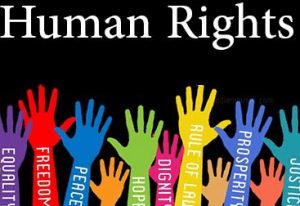UK announces new sanctions regime against rights violations
 As the UK prepares to exit the European Union on December 31, the government has announced its own sanctions regime to deal with human rights violations and abuses around the world.
As the UK prepares to exit the European Union on December 31, the government has announced its own sanctions regime to deal with human rights violations and abuses around the world.
It is the first time that the government is imposing sanctions on people or entities for human rights violations and abuses under a UK-only regime, according to an official statement.
Those under sanctions would be stopped from entering the country and channelling money through UK banks.
The measures would target both government and non-government individuals and organisations, rather than countries, around the world.
There was a warning from the British Foreign Secretary, Dominic Raab, for those who steal money in their countries and try to bank them in the UK.
He told Parliament: “…if you’re a kleptocrat, or an organised criminal, you won’t be able to launder your blood money in this country.
“This government…sends a very clear message on behalf of the British people: that those with blood on their hands, the thugs of despots, or the henchmen of dictators, won’t be free to waltz into this country to buy up property on the Kings Road, or do their Christmas shopping in Knightsbridge, or frankly to siphon dirty money through British banks or financial institutions,” Mr Raab added.
As a start, the UK government has placed 49 individuals and two organisations under sanctions: 25 Russians, 22 Saudis, two high-ranking Myanmar military generals and two organisations in North Korea.
The Russians were involved in the death of the auditor, Sergei Magnitsky, who uncovered widespread corruption by a group of Russian tax and police officials.
The Saudi nationals were connected with the death of the journalist, Jamal Khashoggi, in Turkey in October 2018, while the Myanmar military generals were involved in the ill-treatment of the Rohingya people and other ethnic minorities in the country.
The organisations in North Korea are accused of torture, murder and forcing people to work in the country’s labour camps.
“We’re designating 49 people and organisations for responsibility in some the worst human rights abuses in recent memory,” Mr Raab said.
“This is a demonstration of Global Britain’s commitment to acting as a force for good in the world.”
The government said the sanctions regime would also include those who “commit unlawful killings perpetrated against journalists and media workers, or violations and abuses motivated on the grounds of religion or belief”.
“The suite of measures can also apply to those who facilitate, incite, promote, or support these violations/abuses, as well as those who financially profit from human rights violations and abuses.
“The UK will continue to utilise a range of tools to tackle serious human rights violations and abuses around the world, including the UN and EU multilateral sanctions regimes,” the government statement added.
Mr Raab told Parliament that the regulations were “the latest next step forward in the long struggle against impunity for the very worst human rights violations”.
“We’ve deliberately focused on the worst crimes, so we have the clearest basis, to make sure we can operate the new system as effectively as we possibly can.
“That said, we’ll continue to explore expanding this regime to include other human rights.
“…we are already considering how a corruption regime could be added to the armoury of legal weapons that we have.”
For the last two decades, the British government has been in constant discussions with a number of Africa nations, especially Nigeria, to return looted funds stashed in UK banks.
The negotiations are continuing, with Nigeria currently calling on the British government to return the former Petroleum Minister, Diezani Alison-Madueke, to face trial for allegedly siphoning billions of dollars from the country.
Mrs Alison-Madueke, who has been living in London since 2015, has always denied the charges made by Nigeria’s Economic and Financial Crimes Commission.
An African diplomat in London told the GNA: “Let’s see how the new sanctions regime will work in the light of the continued illicit flows of huge amounts of money from Africa each year.”
Source: GNA
